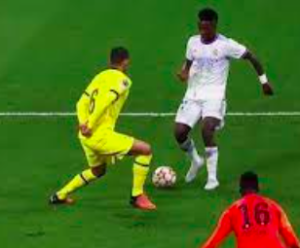The Spirit of Play | This Unsightly Trend That Needs to Go Away
Lying down behind a wall during a free-kick is a practice that should be considered not only dangerous but goes against the spirit of the game and should be penalized accordingly.
When a team is faced with a free-kick, they often employ a wall consisting of players lying down behind it. The intention is to block a low-struck ball from passing under the wall and into the goal. However, this practice puts the players at risk of serious injury. If a ball is accidentally kicked towards the players lying down, or when the players in the wall jump, they are exposed to many possible injuries such as head injuries, spinal cord injuries, and concussions. Thus, this practice should be heavily penalized under Law 12.
What is the “Spirit of the Game?”
In addition to being dangerous, lying down behind a wall during a free-kick is a practice the goes againts the spirit of the game. It creates an unfavorable situation for the team taking the free-kick as their opponents as arguably the players are players are not coming together “in a fair and sporting manner to determine the outcome of the match.” The play disrupts the flow of the game and creates an unaesthetic appeal to the observer of the game and detrimental to the sport.
 A way to tackle this issue is to have a defender in a goalkeeper low stance position behind the wall, ready to use a k-barrier-like save without the hands. This technique involves the defender extending their leg or foot, similar to a goalkeeping “spread” save, to block the ball with their body.
A way to tackle this issue is to have a defender in a goalkeeper low stance position behind the wall, ready to use a k-barrier-like save without the hands. This technique involves the defender extending their leg or foot, similar to a goalkeeping “spread” save, to block the ball with their body.
This way, the ball is safely deflected away, and the defenders behind the wall remain unharmed. This technique can be taught to defenders, and they can incorporate it into their defensive strategies.
A similar strategy can be seen HERE with the player reacting to the low ball .
What are your thoughts on the the unsightly practice of lying down behind a wall during a free-kick? Should it be considered dangerous, against the spirit of play, and penalized accordingly?


